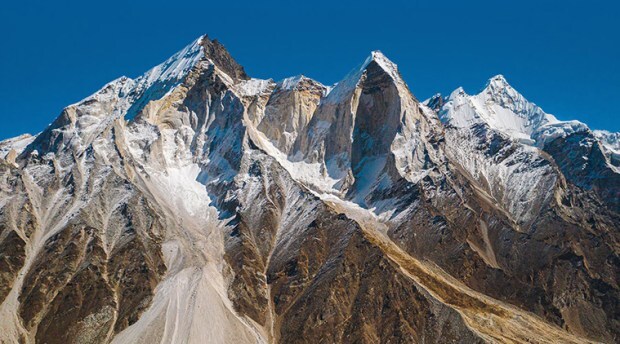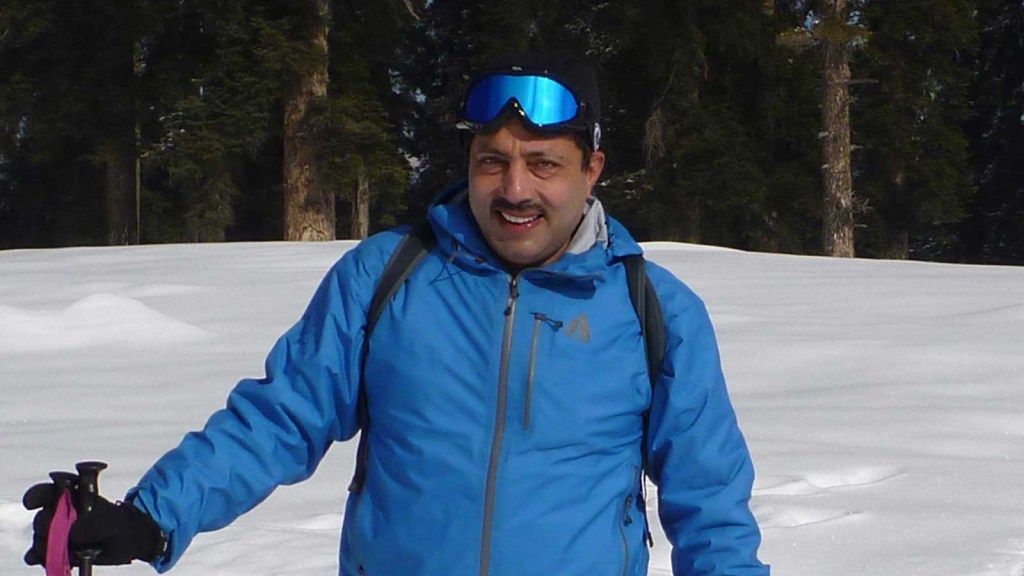How has the adventure tourism sector in India evolved over the past few years, and what trends do you foresee shaping its future?
Adventure travel was a $683 billion industry globally before the pandemic, showing a 21 percent Compound Annual Growth Rate (CAGR) since 2012. According to the World Bank, adventure travel is the largest niche market with about 238 million travellers annually. Adventure tourism is likely to see an exponential growth in the next decade. As per pre-pandemic projections of the Adventure Travel Trade Association (ATTA) and George Washington University, USA, adventure travel was to be a trillion-dollar global industry by 2024.
The adventure tourism sector in India has seen remarkable growth and evolution, especially in the last few years. Post-pandemic, there has been a resurgence in interest, with travellers seeking immersive adventure experiences that reconnect them with nature. Trends such as sustainable tourism, with a strict leave-no-trace ethos and experiential adventures are shaping the future. More people are prioritizing environmental consciousness and looking for ways to minimize their footprint while enjoying adventure activities. I foresee a continued emphasis on responsible travel, which aligns perfectly with our rich natural heritage and diverse offerings.

What initiatives is ATOAI currently undertaking to promote sustainable and responsible adventure tourism in India?
ATOAI is deeply committed to promoting sustainable and responsible adventure tourism in the country. The Ministry of Tourism, Government of India has set up the National Board of Adventure Tourism where ATOAI plays a pivotal role. The National Board focuses on sustainable growth strategies, risk mitigation, new products, capacity building, marketing and sustainable adventure tourism. We are working closely with our Ministry of Tourism, Government of India on launching of two Mega Trekking Trails—the Ganga Nature and Heritage Trail and the Western Indian Himalayan Mega Trail. This will be a game changer for adventure tourism in India. ATOAI is also working closely with many state governments in an advisory capacity on policy, skill development, capacity building and promotion of responsible adventure tourism.
ATOAI has launched several key initiatives, such as Safety Guidelines for Indian Adventure Tourism. We are conducting courses on Responsible Adventure Tourism, training guides in first aid and sustainability principles, advocating for the use of certified equipment and working on standardization with the Bureau of Indian standards. Furthermore, we emphasize the “Leave No Trace” ethos, encouraging operators and travellers to minimize their impact on the environment.
How do you see India competing on the global stage as an adventure tourism destination? What unique challenges and opportunities does India face in this market?
India is blessed as a country as far as our natural heritage is concerned. According to the World Economic Forum, India’s Natural Heritage is ranked amongst the ten best in the world. India is blessed to have every conceivable geographical terrain, we are a global biodiversity hotspot, we have 73 percent of a culturally diverse Himalayan range, 7,000 kms of coastline and rich fauna, flora and avifauna in our country.
Our vision is to have India amongst the ten best global destinations for Adventure Travel by 2034. India has immense potential to compete globally as a premier adventure tourism destination, given its diverse geography and rich cultural heritage. However, we face challenges such as the need for standardized safety regulations, infrastructural gaps, carrying capacity issues and ensuring responsible adventure tourism practices. The opportunities lie in our ability to offer unique experiences—from the majestic Himalaya to the stunning coral islands, deserts and coastlines—while promoting local communities. We are also working with our government on promoting adventure tourism in the far-flung regions of our country and enhancing air connectivity, which will further bolster our position on the global stage.
What safety standards and certifications does ATOAI recommend or enforce for adventure tour operators to ensure the well-being of tourists?
Safety is paramount in adventure tourism. ATOAI has developed comprehensive safety guidelines covering 29 verticals of adventure activities. We recommend that all adventure operators adhere to these guidelines, which include using internationally certified equipment, employing trained personnel and having robust Standard Operating Procedures. Additionally, we are collaborating with the Bureau of Indian Standards to set specific standards for adventure gear and certification of adventure operators. Until the national regulations are fully implemented, we urge state governments to adopt these standards and ensure that only licensed operators conduct adventure activities.
How has the post-pandemic era impacted the adventure tourism sector in India, and what measures are being taken to restore traveller confidence?
The post-pandemic era has led to a significant shift in traveller behaviour, with many seeking open-air, less crowded destinations. To restore confidence, we are implementing rigorous safety protocols and promoting outdoor experiences that are sustainable and responsible in letter and spirit. ATOAI is actively engaging with the government to develop a national adventure tourism rescue system and encourage insurance policies tailored for adventure activities. Additionally, we are emphasizing the importance of responsible tourism practices that benefit local communities, which resonates with travellers’ desires to contribute positively to the places they visit.
Adventure tourism can indeed be a vehicle for attaining our Sustainable Development Goals. As Mahatma Gandhi, the Father of Our Nation wisely noted, our actions today shape the future. As we forge ahead, let us commit to preserving our natural heritage for generations to come.
Author Bio:
Ajeet Bajaj is an adventurer and explorer and is one of the few in the world to have completed the Explorer’s Grand Slam which entails skiing to the North Pole & the South Pole as well as climbing the Seven Summits, that is the highest mountain on every continent (Everest in Asia, Aconcagua in South America, Denali in North America, Kilimanjaro in Africa, Elbrus in Europe, Vinson in Antarctica, and Kosciuszko in Australia). Ajeet scaled Mount Everest with his daughter Deeya on May 16, 2018 becoming the first Indian Child-Parent duo to have accomplished this. They are also the first parent-child team in the world to have climbed Mount Everest from the harder North side.
Ajeet is the founder and Managing Director of Snow Leopard Adventures Pvt. Ltd., a four times National Tourism Award winning organization. He is Founder, Planet Harmony, an initiative to integrate to the mainstream children from disturbed areas such as J&K, North East and Naxal affected areas. He has served as a member of Global Sustainable Tourism Council, a United Nations World Tourism Organisation. Ajeet was Chairperson of the Camping Policy & Caravan Tourism Policy for the Ministry of Tourism, Govt. of India. Ajeet is fellow of the Royal Geographical Society and Fellow, Aspen Global Leadership Network. Ajeet is the President of the Adventure Tour Operators Association of India (ATOAI). He was conferred the Padma Shri in 2012 by the President of India.
Disclaimer:
This article contains sponsored content that may not reflect the independent opinion or views of FinancialExpress.com. Further, FinancialExpress.com cannot be held responsible for the accuracy of any information presented here. Please consult a certified financial advisor before making any decisions based on this article.

